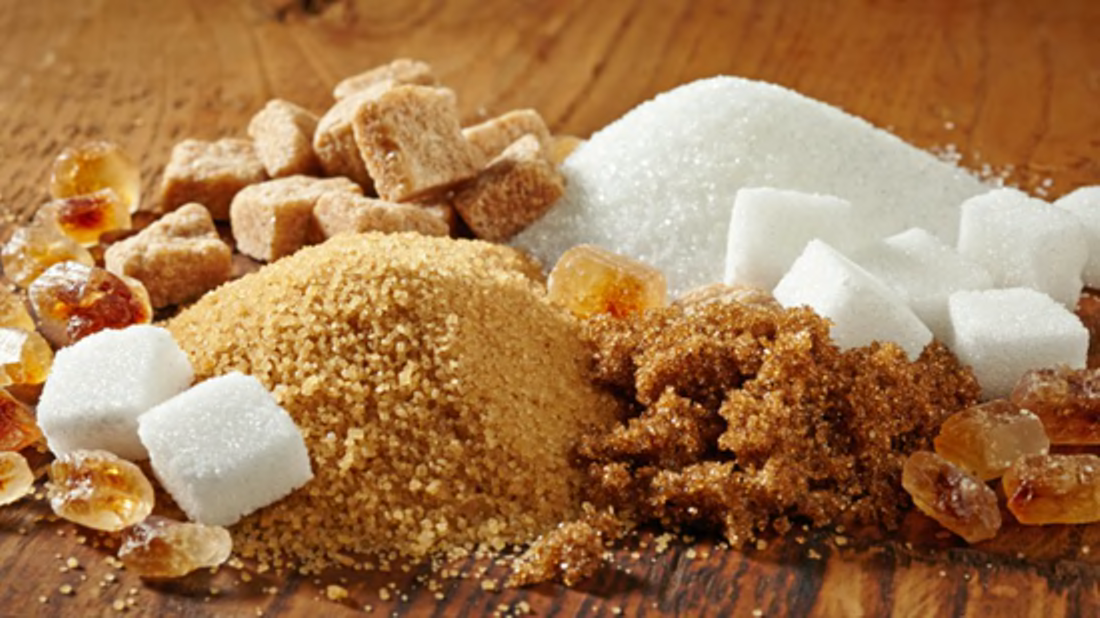Sugar And Scribe - Exploring Digital Connections
There's something quite interesting, you know, about how different parts of our digital lives, almost like disparate pieces, sort of come together and create a bigger picture. It's really about looking at the things that draw people in, the bits of information that get shared around, and the ways we try to make sense of it all. We often find ourselves drawn to what's popular, what's a bit sweet, you might say, and then we also seek out places where knowledge is kept and passed along, just like a scribe would do.
When you think about it, the online world is, in a way, a mix of things that catch our eye and the deeper wells of information we can tap into. We see personalities who are, very, very popular, bringing a certain kind of appeal, a kind of "sugar" to the online experience. Then, there are the platforms and tools that help us collect, store, and share what we know, acting like modern-day "scribes" for the collective human experience. It's a curious blend, isn't it, how these two aspects often interact and influence each other?
This discussion is, actually, a look at how these different elements – the appealing and the informative – weave through our online interactions. We'll consider figures who generate a lot of public interest, platforms that serve as big depositories of knowledge, and even the more technical sides of how information is recorded and understood. It's about seeing the threads that connect the "sugar" of public fascination with the "scribe" work of documenting and sharing what we learn.
Table of Contents
- Who is Yang Chenchen, the "Sugar" of Showgirl Networks?
- How Does the "Scribe" of Knowledge Platforms Shape Our Digital World?
- The Sweet Science - What Does "Sugar" Mean for Research and Data?
- Can Digital "Scribes" Help Us Understand "Sugar" Better?
- The Impact of Online Communities and Their Scribes
- Unpacking Digital Content and the Sugar of Popularity
- The Role of Data Scribes in Preserving Digital Information
- Thoughts on Wisdom and the Scribe's Path
Who is Yang Chenchen, the "Sugar" of Showgirl Networks?
When we think about what draws attention online, certain individuals really stand out, almost like a sweet treat. Yang Chenchen, known sometimes as "sugar sugar little sweetheart CC," is a very prominent figure on Showgirl Network, a platform where she has gathered a considerable following. She is, in a way, a prime example of the kind of public personality that attracts a lot of people, creating a significant amount of online interest and buzz. Her presence, too, seems to generate quite a bit of traffic for the platform she appears on.
She began her public appearances, so, back in July of 2015, originally going by the name Gu Xinxin. At that point, she might have seemed, perhaps, like just another face in the crowd. Yet, over time, her public image, even with pictures that might be considered quite open, has certainly captured the attention of many. She and another individual, Zhou Yanxi, are, apparently, considered some of the most followed models on Showgirl Network, indicating their strong appeal and popularity among users. This kind of popularity is, arguably, a form of "sugar" that keeps people coming back to the platform, looking for more of what these individuals offer.
Yang Chenchen's Public Profile
| Detail | Information |
|---|---|
| Public Name | Yang Chenchen (sugar sugar little sweetheart CC) |
| Platform | Showgirl Network |
| Fan Count | 110,000 (on Showgirl Network) |
| Debut Month/Year | July 2015 |
| Original Name | Gu Xinxin |
| Notable Peer | Zhou Yanxi (also a popular model) |
How Does the "Scribe" of Knowledge Platforms Shape Our Digital World?
Beyond the immediate appeal of popular figures, there are platforms that serve a different, but equally important, purpose: gathering and sharing knowledge. Zhihu, for instance, is a major online community in China where people can ask questions and get answers, and where creators can share original content. It started up, you know, in January of 2011, with a core idea of helping people better share what they know, what they've done, and what they think, so everyone can find the answers they're looking for. It's, basically, a place where people act as "scribes," writing down and sharing their insights for others to learn from.
This kind of platform, with its serious, professional, and friendly approach to community interaction, really shows how important it is to have places where information is handled with care. It's not just about getting quick answers; it's about building a collective pool of understanding. The way Zhihu operates, by encouraging thoughtful contributions and discussions, helps shape how people learn and think online. It's, kind of, like a giant, shared notebook where millions of "scribes" are constantly adding to what we all know, making it a valuable resource for anyone seeking information.
The Sweet Science - What Does "Sugar" Mean for Research and Data?
The word "sugar" can also take on a much more scientific meaning, moving from popular appeal to the very building blocks of life and health. We see this, for example, in studies that look at how the body handles sugar, like research into how blood sugar levels and a lack of insulin affect the making of new glucose by the kidney in dogs. This kind of work, you know, gets into the very detailed ways our bodies process important substances, showing that "sugar" is a central piece of biological understanding. Researchers like Kida K, Nakajo S, Kamiya F, and Toyama Y, are, in fact, part of this effort to understand these complex bodily processes.
Then there's the story of erythritol, which is, essentially, a type of sugar alcohol. Scientists looked at how it, and some other sugar alcohols, behaved when mixed with human gut bacteria for a day. What they found was quite interesting: while many of the other sugar alcohols were broken down by the bacteria, erythritol stayed completely unchanged after 24 hours. It wasn't fermented at all by the bacteria, which led the researchers to conclude that this particular "sugar" isn't processed by those tiny organisms in the same way others are. This tells us, in a way, something important about how different types of "sugar" interact with our bodies, and how "scribes" of science record these findings.
Can Digital "Scribes" Help Us Understand "Sugar" Better?
The act of "scribing" in the digital age goes beyond just writing down words; it also involves managing and preserving digital information, which can include data about "sugar" in its various forms. Think about the challenge of handling file hashes, or ed2k download links, or even using services like Xunlei offline or Baidu Cloud for backup. These are, essentially, ways of recording and moving digital content, making sure it's accessible and safe. If you have, for instance, a file hash and an ed2k link, you might want to back up that file using a cloud service. This process is, quite literally, a form of digital "scribing," ensuring that pieces of information are not lost and can be found later.
So, when we consider the detailed information about blood sugar or the behavior of erythritol, it's the work of these digital "scribes"—whether they are researchers publishing papers, or systems backing up data—that makes this knowledge available and usable. Without these methods of recording and preserving, our understanding of "sugar" in both its popular and scientific contexts would be, pretty much, incomplete. It's about how the tools and practices of digital information management support our ability to learn and share, creating a continuous record of our collective knowledge.
The Impact of Online Communities and Their Scribes
Online communities, like Zhihu, play a very big part in how we share and get information. They are, in a sense, places where countless "scribes" come together to add to a shared pool of knowledge. This kind of platform is built on the idea that people can get better at sharing what they know, what they've done, and what they think, so that everyone can find the answers they need. It's a place where serious, professional, and friendly interactions are, generally, encouraged, making it a valuable resource for many.
The way these communities are set up, they really encourage people to contribute thoughtfully. This means that the information you find there is often quite detailed and well-considered, because people are taking the time to write things down carefully. This collective effort of "scribing" helps to build a more informed online world, where people can learn from each other's experiences and insights. It's, actually, a powerful example of how digital tools allow for a constant exchange of ideas and information, shaping what we know and how we think.
Unpacking Digital Content and the Sugar of Popularity
The appeal of certain online content, like the popularity of individuals such as Yang Chenchen, can be thought of as a kind of "sugar" that draws people in. It's the immediate attraction, the visual interest, or the sense of connection that makes people want to engage. This popularity, you know, can be measured by things like fan counts, which show just how many people are following and interested in what someone is doing. It's a clear sign of what captures the public's attention in the digital space.
This kind of "sugar" isn't just about entertainment; it also drives traffic and engagement for online platforms. When someone has a lot of followers, they bring a lot of eyes to the content they create or are part of. This shows how important appealing content is in the online world, and how it can, basically, shape what becomes widely seen and discussed. It's a significant part of the online experience, where what's popular often gets even more popular, creating a kind of self-sustaining cycle of interest.
The Role of Data "Scribes" in Preserving Digital Information
The act of "scribing" also extends to the very practical side of managing digital data, ensuring that information is kept safe and accessible. When we talk about things like file hashes, ed2k download links, or using services for offline backups, we're talking about the careful work of digital "scribes." These are the processes and tools that help us keep track of digital files, making sure that a specific piece of information, like a document or a video, can be identified and retrieved later. It's, in a way, like creating a permanent record for digital items.
This kind of data management is, pretty much, essential in a world where so much information is digital. Whether it's scientific research data, popular media files, or personal documents, the ability to store, transfer, and verify these files relies on these "scribing" methods. Without them, digital content could easily get lost or become unreadable over time. So, the "scribes" of data, through their methods and systems, play a very important part in preserving our digital heritage and making sure information remains available for future use.
Thoughts on Wisdom and the Scribe's Path
Beyond the specific facts and figures, there's a broader idea about how we gather and share wisdom, which connects to the role of a "scribe." The phrase "Stay hungry, Stay foolish," often linked to a well-known figure, is, typically, translated in a way that suggests always wanting to learn and being open to new ideas. While that's certainly not a bad way to think about it, the original meaning might have been, perhaps, a bit different, pointing to a deeper drive for knowledge and an openness to trying new things, even if they seem unconventional.
This idea of seeking knowledge and sharing insights is, in essence, the work of a "scribe." It's about not just consuming information, but also contributing to it, questioning it, and making it accessible to others. Whether it's through a formal platform like Zhihu, or just by sharing what you've learned with a friend, the act of passing on understanding is a very old and important human activity. It's about how we, as a collective, build on what has come before, always looking for new answers and new ways to think, which is, honestly, a never-ending process.

Sugar: pros, cons and alternative sweeteners. – Waku – Medium

Chemical Makeup Of Table Sugar - Mugeek Vidalondon

15 Sweet Facts About Sugar | Mental Floss